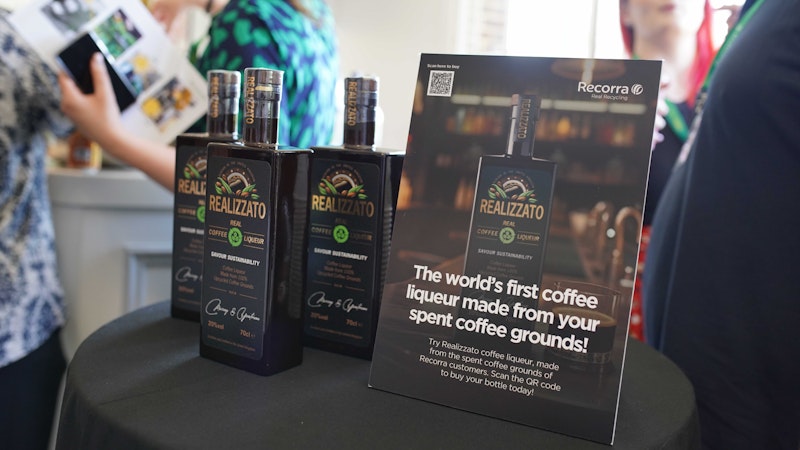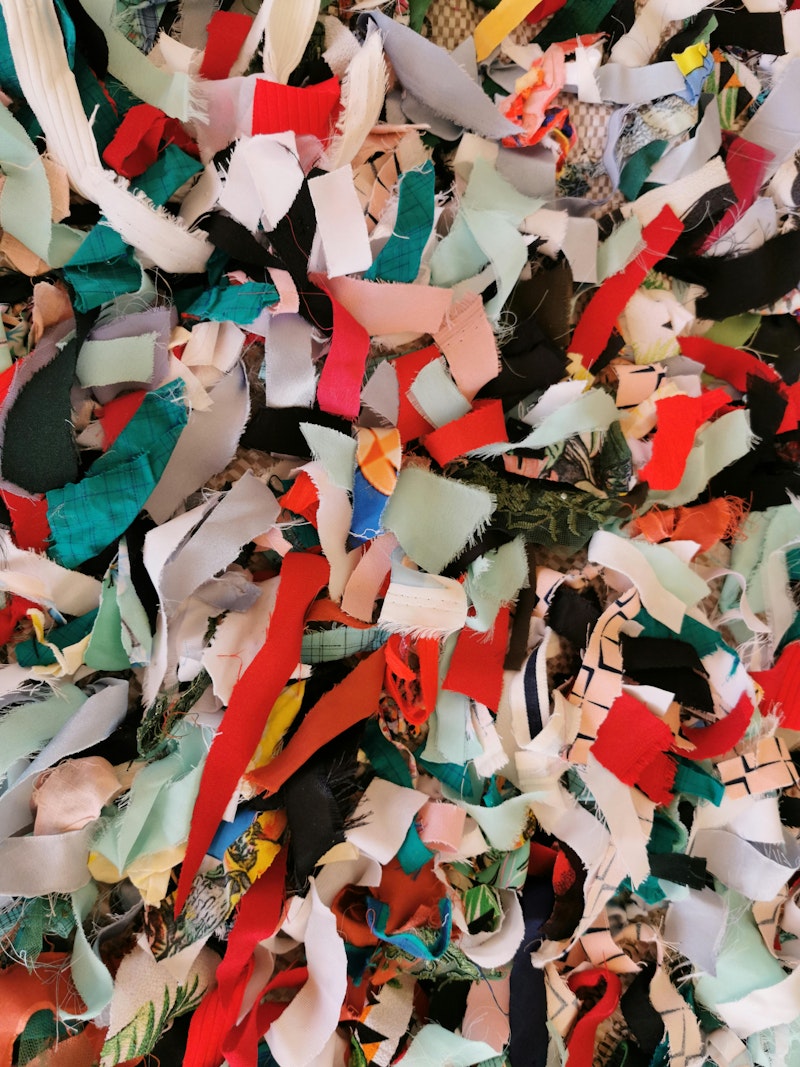
Revolutionising Coffee Grounds Recycling with Realizzato Coffee Liqueur
Have you heard about Realizzato? They have a rather unique way of recycling used-up coffee grounds.

Having a Recorra Dry Mixed Recycling (DMR) service is perhaps the easiest way for UK businesses to comply with their legal waste and recycling obligations.
With stricter recycling regulations, rising waste disposal costs, and growing encouragement for sustainable practises, understanding what your business should be doing with dry mixed recycling is essential for legal compliance, cost efficiency, and environmental credibility.
In this blog, find out everything London and Brighton–based businesses need to know about commercial Dry Mixed Recycling.
Dry Mixed Recycling is the simplest form of recycling, and the easiest to implement, as all recyclable materials are collected together. Making recycling simple and easy is vital to having people in your workplace engage with proper waste and recycling practices.
Now, in 2025, with more stringent regulations such as Simpler Recycling, commercial Mixed Recycling matters for businesses to ensure compliance and is an easy way to showcase your commitment to environmental sustainability.
Dry Mixed Recycling is one of Recorra’s core mixed material recycling services, designed for the collection of various clean, dry, and recyclable materials commonly produced by businesses. This recycling stream typically includes items such as plastic milk bottles, drinks cans, cardboard, paper, and food containers. These materials can all be placed together in your workplace’s mixed recycling bin, making it easier to recycle without the need to separate each material.

By fully utilising your business’ Dry Mixed Recycling, you will be removing weight and volume from general waste and therefore reducing costs. General waste is a more expensive method of waste disposal for businesses.
Your business may also be entitled to rebates for certain materials like cardboard. Rebates can be granted to businesses who provide a significant volume of high-quality recycled materials, often achieved through having a dedicated cardboard collection.
All businesses with 10 or more employees must be able to show they are recycling a specified list of materials under the government’s 2025 Simpler Recycling legislation.
These materials are:
It is a legal requirement for food waste to be collected in its own bin.
We encourage businesses to separate their paper and cardboard where possible, but we have completed the necessary assessments on behalf of our customers, so this is not required.
If your business produces more than an average of five glass items per week, you should have a separate commercial glass recycling collection in addition to your Dry Mixed Recycling.
From 2027, all businesses will also be responsible for recycling flexible plastics.
The primary purpose of commercial Dry Mixed Recycling is to provide a channel for businesses to collect and recycle their waste. Your office Dry Mixed Recycling collection will:
By collecting these materials away from contaminants, your business can increase recycling rates as well as increase the quality of the resulting recycled materials. improved recycling helps save energy, cut carbon emissions, and reduce the need to extract new materials, which harms the environment.

Simpler Recycling legislation (more on this later) states businesses should collect paper and cardboard separately. Recorra has completed a required assessment on behalf of our customers, so they do not have to.
Find out more about whether to segregate paper and cardboard, in our recent blog here.
All materials collected in Dry Mixed Recycling should be clean and dry. Moisture and dirt like food residue can quickly degrade the quality of materials collected for recycling, especially paper and card, and so please keep them out.
As a rule, if you can (theoretically) tip out an item over your head without having waste or liquid fall on you, it is clean enough to be placed in your workplace Dry Mixed Recycling.

With Recorra, it is easy to ace your businesses Dry Mixed Recycling. Follow our top tips here:
Keep it clean and dry
Over 16% of all mixed recycling is rejected due to contamination. By simply cleaning and drying your office mixed recycling items, you can help save these items from being wasted and protect other materials from being damaged.
Create an easily accessible bin hub in your workplace
Having an accessible and enticing bin space will encourage correct recycling practices. Always make sure that there is a general waste bin next to recycling bins so that the recycling bins don’t become the catch-all throwaway container.
Fill your space with simple signage
Education and understanding are vital for workplaces to take part in recycling. Signage is the simplest way to help your employees know exactly what to put in your commercial mixed recycling.
Remove under desk bins to encourage use of mixed recycling bins
Contact our teams to find out how we can help your business create top-tier workplace “bin-frastructure”.
While Dry Mixed Recycling is the simplest way to recycle, it is still easy to make mistakes with your business’s Dry Mixed Recycling.
Contamination errors
Lack of staff training or instruction
Material specific mistakes

Recorra will collect your workplace’s Dry Mixed Recycling and put it through nine stages of sorting at our Materials Recovery Facility (MRF). Your businesses’ Dry Mixed Recycling collection will be separated according to each item’s material type.
Collection and transportation
Once your workplace’s recycling bin is full of packaging, containers, papers, and more, Recorra will collect your mixed recycling containers and transport them to our Materials Recovery Facility (MRF) in Purfleet, Essex.
Processing: Sorting and segregation
At our MRF, the commercial mixed recycling will undergo nine rounds of separation using a combination of both manual, machine, and now AI-powered sorting.
This will result in collections of items of the same materials.
Baling and transportation
Once these materials are sorted according to material type, they will be compacted and baled – put into large, compact, and easily transportable cubes of each material. These are then ready to be transported to our recycling partners. Find out more about where we send our recycling here.
Resource recovery and recycling
Once at our recycling partners, the bales of materials will be broken down and repurposed into new products, closing the loop and upholding the circular economy.
Setting up your commercial waste collections with Recorra is simple. Get a quick quote from our website, or contact your local Helpdesk to speak directly with one of our team members.
By Bryony Sharma
Get an instant quote today.

Have you heard about Realizzato? They have a rather unique way of recycling used-up coffee grounds.

Protect your brand and the planet. Learn how Recorra securely recycles branded workwear for maximum sustainability and security.

What is the future of commercial food waste and how is new UK laws making food waste recycling mandatory? Learn how businesses like Recorra are leading the way to reduce environmental impact and support local communities.